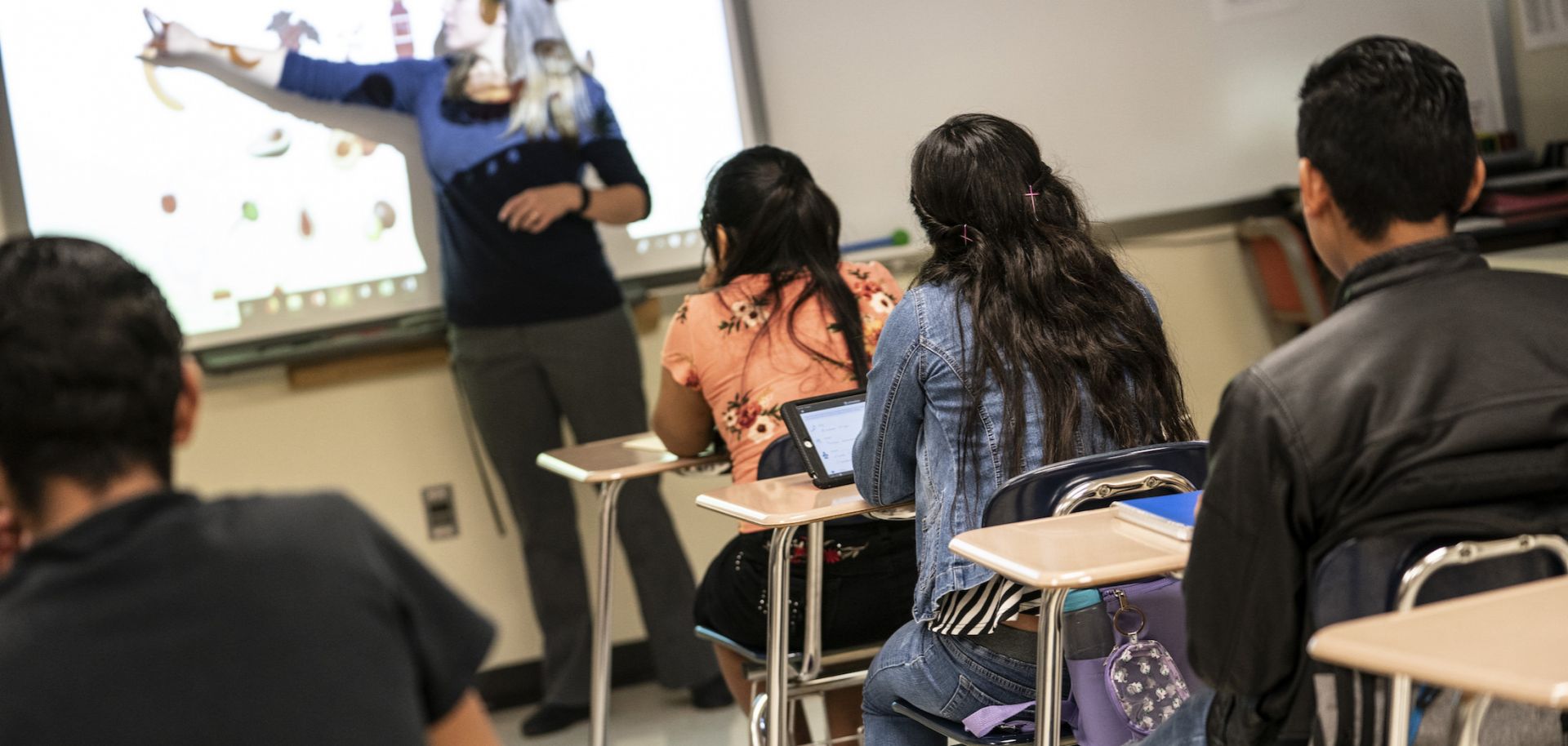ASSESSMENTS
What Coronavirus School Closures Would Mean for the U.S. Economy

Mar 11, 2020 | 16:34 GMT

Students engage in a vocabulary lesson at a rural high school in Minnesota. U.S. school closures are increasingly likely in response to the coronavirus outbreak and risk causing significant economic disruptions across the country.
(COURTNEY PERRY/The Washington Post)
Highlgihts
- As political pressure increases to contain the coronavirus epidemic, more U.S. schools are expected to close in the coming weeks.
- By forcing more families to stay home and take care of their children, such closures risk disrupting worker productivity, domestic consumption and business operations across the country.
- Lower-income communities in both rural and urban areas, in particular, will face potentially strong disruptions to key providers of social services without sufficient or affordable alternatives.
- To offset the economic fallout, the U.S. government will likely implement new stimulus and social spending measures that could persist past the current coronavirus crisis.
Subscribe Now
SubscribeAlready have an account?
